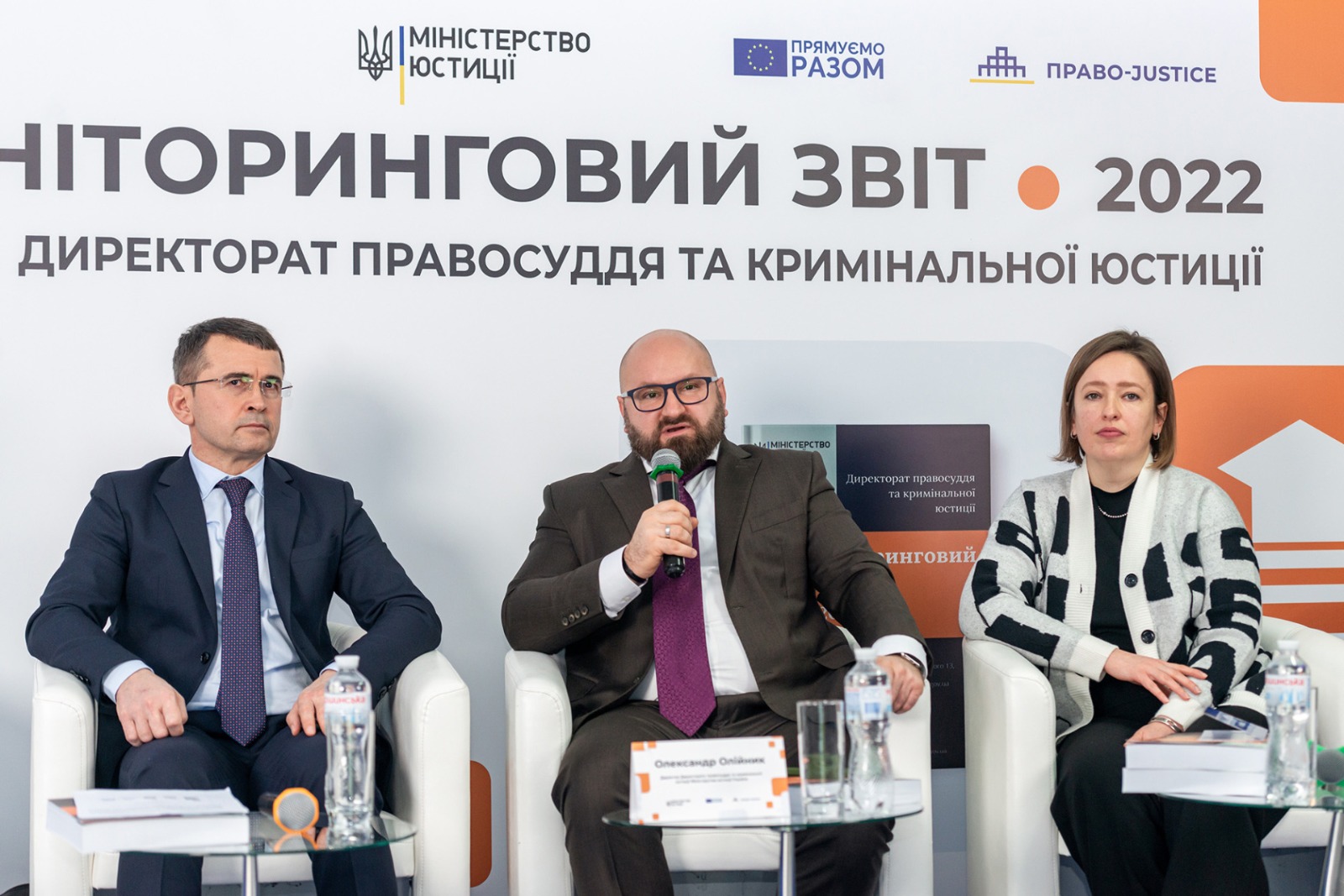With the support of the EU Project Pravo-Justice, the monitoring report by the Ministry of Justice of Ukraine on bankruptcy presented

On February 8, annual monitoring of the application of legislation in the field of bankruptcy was presented; it was conducted by the Ministry of Justice of Ukraine with the support of EU Project Pravo-Justice.
Addressing the event attendants with a welcome speech, Oleksandr Banchuk, Deputy Minister of Justice of Ukraine, noted that improving the legislation in the field of bankruptcy and aligning it with European legal framework is an integral part of Ukraine implementing European integration plan.
“The Memorandum of Understanding between Ukraine and the EU on Macro-Financial Assistance in the amount of EUR 18 billion provides, in particular, for aligning bankruptcy legislation with the EU Directive of 2019. The Parliament must consider the relevant draft law by the fall of 2023,” Oleksandr Banchuk said.
On his part, Oleksii Movchan, Member of Parliament, Deputy Head of the Parliamentary Committee on Economic Development, said that MPs are open to sound proposals from the professional community and stakeholders to improve the legislation governing insolvency.
“The war gave Ukraine a chance to reboot and set straight the mistakes that are out there. We have the opportunity to draw up better legislation, including in the field of bankruptcy, by utilizing the best global practices,” Oleksii Movchan noted.
During his welcome speech, Oleh Vaskovskyi, Secretary of the Bankruptcy chamber of the Cassation Commercial Court within the Supreme Court of Ukraine, drew attention to the fact that it is necessary to review the current moratoria which significantly complicate bankruptcy procedures.
“Moratoria are difficult issues that have been in the field of bankruptcy for several years. And in light of the tough economic situation and martial law, it only got worse. It is necessary to be very careful about the legislator’s right to foresee the possibility of terminating certain procedures and actions by the participants in the bankruptcy procedure because this will significantly narrow their rights and make it impossible to properly enforce judgments,” Oleh Vaskovskyi noted.
Iryna Zharonkina, Property Rights and Enforcement Component Lead, EU Project Pravo-Justice covered the need to amend the legislation, taking into account the recommendations set out in Monitoring-2022 presented.
“Social relations in wartime develop so quickly that the legislation does not keep up with them. This is especially relevant for the field of insolvency, given the importance of this field for the country’s economy”, said Iryna Zharonkina and called on the professional community to actively communicate with the Ministry of Justice of Ukraine to identify urgent issues and jointly work out ways to solve them.
While presenting bankruptcy monitoring report, MoJ representatives focused on such four problems:
- Selling the debtor’s property if bankruptcy/insolvency proceedings are initiated
- Certain aspects of bankruptcy trustee’s operations
- Mandate of the commercial court in bankruptcy cases during martial law
- Selling property within the bankruptcy case if the second re-auction is over without the winner determined.
You can review the Monitoring report by following the link.
You can view full video recording of the presentation of the Monitoring Report here.